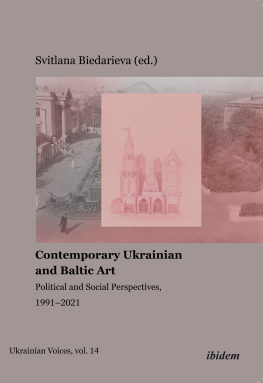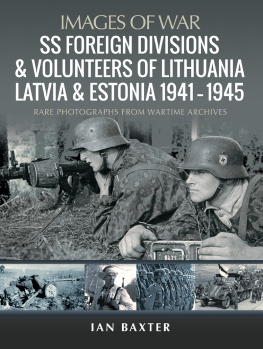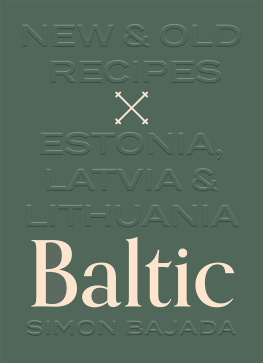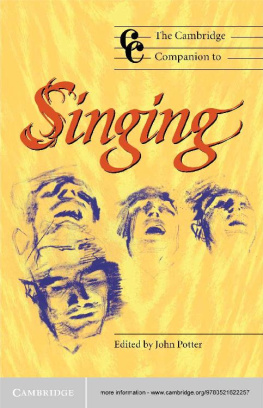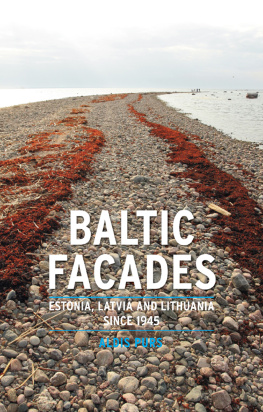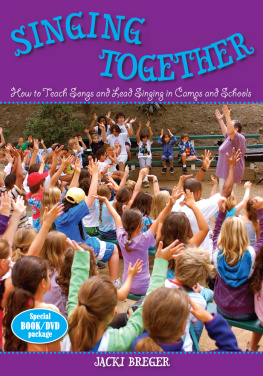
NEW DIRECTIONS IN SCANDINAVIAN STUDIES
TERJE LEIREN AND CHRISTINE INGEBRITSEN,
SERIES EDITORS
NEW DIRECTIONS IN SCANDINAVIAN STUDIES
This series offers interdisciplinary approaches to the study of the Nordic region of Scandinavia and the Baltic States and their cultural connections in North America. By redefining the boundaries of Scandinavian studies to include the Baltic States and Scandinavian America, the series presents books that focus on the study of the culture, history, literature, and politics of the North.
Small States in International Relations edited by
Christine Ingebritsen, Iver B. Neumann, Sieglinde Gstohl, and Jessica Beyer
Danish Cookbooks: Domesticity and National Identity, 16161901
Carol Gold
Crime and Fantasy in Scandinavia: Fiction, Film, and Social Change
Andrew Nestingen
Selected Plays of Marcus Thrane translated and introduced by
Terje I. Leiren
Munchs Ibsen: A Painters Visions of a Playwright
Joan Templeton
Knut Hamsun: The Dark Side of Literary Brilliance
Monika agar
Nordic Exposures: Scandinavian Identities in Classical Hollywood Cinema
Arne Lunde
Icons of Danish Modernity: Georg Brandes and Asta Nielsen
Julie K. Allen
Danish Folktales, Legends, and Other Stories
Timothy R. Tangherlini
The Power of Song: Nonviolent National Culture in the Baltic Singing Revolution
Guntis midchens
The Power of Song
NONVIOLENT NATIONAL CULTURE
IN THE BALTIC SINGING REVOLUTION
Guntis midchens
THIS BOOK IS MADE POSSIBLE BY A COLLABORATIVE GRANT
FROM THE ANDREW W. MELLON FOUNDATION.
This publication is supported by a grant from the Scandinavian Studies Publication Fund and the Baltic Studies Program at the University of Washington.
2014 by the University of Washington Press
19 18 175 4 3 2
All rights reserved. No part of this publication may be reproduced or transmitted in any form or by any means, electronic or mechanical, including photocopy, recording, or any information storage or retrieval system, without permission in writing from the publisher.
University of Washington Press
www.washington.edu/uwpress
Published in Europe by Museum Tusculanum Press
126 Njalsgade, DK-2300 Copenhagen S, Denmark
www.mtp.dkISBN 978-87-635-4148-0
Library of Congress Cataloging-in-Publication Data
Smidchens, Guntis, 1963
The power of song : nonviolent national culture in the Baltic singing revolution / Guntis Smidchens.
pages cm. (New directions in Scandinavian studies)
Includes bibliographical references and index.
ISBN 978-0-295-99310-2 (hardcover : alk. paper)
1. Song festivalsPolitical aspectsBaltic States.
2. Choral singingPolitical aspectsBaltic States.
3. MusicPolitical aspectsBaltic States. I. Title.
ML3917.B37S65 2013
782.4209479dc232013029860
The paper used in this publication is acid-free and meets the minimum requirements of American National Standard for Information SciencesPermanence of Paper for Printed Library Materials, ANSI Z39.481984.
Lifes greatest moments are so simple. A people singing.
Ivar Ivask
CONTENTS
ACKNOWLEDGMENTS
In writing this book I have had the aid of a number of institutions and individuals whose role I gratefully acknowledge. The Ralph Rinzler Folklife Archives and Collections provided copies of sound recordings that are at the center of this study. The University of Washington Libraries ensured access to most published sources quoted here. The EEVA Digital Text Repository for Older Estonian Literature, the Digital Collections at the National Library of Latvia, the Lithuanian Folk Culture Centre website, and Google Books gave easy online access to rare publications. The National Library of Estonia helped locate numerous songbooks in its collection. In Estonia, Latvia, and Lithuania, musicians and singers opened their homes and rehearsals to me and invited me to sing with them. People whom I interviewed in person or by email gave insights beyond any information found in published sources. Their names appear in notes, but I wish to emphasize here that their generosity and friendly assistance enriched this work immeasurably.
The University of Washington Department of Scandinavian Studies provided a Junior Faculty Release Quarter and a Summer Research Grant, and made possible several expeditions to the Baltic. In 19911992 and 1997, my fieldwork was supported in part by grants from the International Research and Exchanges Board (IREX), with funds provided by the National Endowment for the Humanities, the United States Information Agency, and the US Department of State. In 1999 and 2000, travel grants from the Open Society Support Foundation Group Research Support Scheme allowed me to meet colleagues in Latvia for valuable discussions about national identity formation. The UW Chamber Singers and UW Chorale invited me to travel with them on their Baltic concert tours in 2000, 2005, and 2010, allowing me to witness firsthand the power that songs have in creating bridges across language barriers.
Portions of the manuscript were read and commented on by Geoffrey Boers, Mimi Daitz, Thomas DuBois, Ulrich Gaier, Heather MacLaughlin Garbes, Terje Leiren, Lalita Muiniece, ivil Ramokait, and Rimas ilinskas. Kanni Labi offered a particularly incisive reading of several chapters. The entire manuscript was read by Dace Bula, Kevin Karnes, Violeta Kelertas, Aldis Purs, and Zinta midchens, whose critique and encouragement were invaluable. Students in classes I taught at the University of Washington have provided a sounding board for ideas and translation attempts. Scandinavian Department research assistants Sean Hughes and Axel Thorson helped index my archive and edit the manuscript. The editors of the New Directions in Scandinavian Studies Series gave support and suggestions for improvements. Tim Zimmermann, Kerrie Maynes, and the editors and anonymous readers at the University of Washington Press helped shape the manuscripts final version.
Illustrations for this book were possible thanks to the assistance of the directors and staff at the institutions mentioned in the credits. Silvestras Gaiinas, Ojrs Griis, Ain Haas, Inta Kaepja, Andres Kasekamp, Veiko Lukmann, Angonita Rupyt, Valters erbinskis, and Aura Valaniauskien also offered critical help in acquiring images and other resources. Zinta midchens crafted a map of place names mentioned in this book.
All of these institutions and people have improved my work considerably, but I alone remain responsible for this books content. I thank the four teachers who opened up Baltic worlds for me: Violeta Kelertas, Lalita Muiniece, Harri Mrk, and Toivo Raun, and my father, who sang with his children to pass the time on long car trips.
The Power of Song
Introduction
Three Nonviolent National Cultures
A nation who makes its revolution by singing and smiling should be a sublime example to all, wrote the Estonian artist Heinz Valk, in the June 1988 editorial whose title, Singing Revolution, gave the nonviolent Baltic independence movement its name. It is impossible to even imagine in Estonias city streets the riots, barricades, burning automobiles and similar features of mass revolt by large nations. This is not our way!



